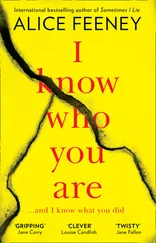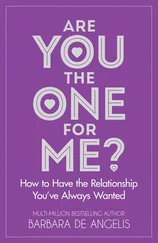“You know what this era is?” said Corinne. “It’s the era of the Russian supermodel. Half the models on the runways in Paris, Milan, and London are Russian. All the scouts are flying in, wandering around these little Siberian towns looking for the next big thing. My boss wants me to find talent here.”
“Do models count as talent?” said Leslie. She was the only smoker in the group. When warming up to make a point, she tapped her cigarettes on the table, ostensibly “packing” them, but with the vehemence of a judge’s gavel. “How are they talented? Because they know how to walk?”
“Ladies,” said Jane. “New subject: the Fourth of July picnic at the embassy. We’re planning a really fun day for all the Americans here.”
“You’re already thinking about July?” said Leslie. “I have to survive this reporting trip to Chechnya first.”
“Don’t even joke about that,” said Corinne. “War gives me the creeps.”
“Then it’s a good thing you work for a fashion magazine,” Leslie said. “Your job is the polar opposite of public-radio journalism.”
“Aren’t you sanctimonious today?” Corinne said.
“Come on,” Jane said. “Give it a rest. We’re supposed to be showing Sarah a good time.”
“You’re having a good time, aren’t you?” Leslie said to me. Her hair was short and spiky; she reminded me of a spider plant.
“Sure,” I said. “I’m having a blast.”
That night Leslie told me about Yeltsin’s Truth Decree. In July 1994 the president had signed a decree forbidding false advertising. It was aimed at all the companies that were duping naïve Russians. “Billboards, TV commercials, newspaper ads telling people they’ll get a thousand-percent return on their investments. These poor pensioners are sinking their life savings into these schemes without asking any questions. And then the companies just disappear and take all their money. Everyone wants to get rich, but no one really understands the realities of a market economy.”
“My assistant lost a lot of money that way,” Corinne said. “She invested her parents’ savings, too. They lost everything. Can you imagine?”
“Con artists and crooks,” Leslie said. “It’s so depressing.” Resigned, she lit a cigarette. “Reform is a pipe dream.”
“The Truth Decree sounds like something out of Orwell,” I said. “Did it work?”
Leslie laughed. “What do you think?”
* * *
SVETLANA’S OFFICE VOICE-MAIL MESSAGE was in English and Russian. I got used to hearing her say, “Please to leave the message after beep.”
“It’s Sarah. Zuckerman. Again,” I said day after day. She didn’t return my calls.
And so I waited and sifted through the information I had.
Mr. Jones had access and opportunity, but what was his motive? He had never struck me as an ideologue. He and his wife were so happy in Washington; why would they give that up? And even if he had been a spy, that didn’t necessarily mean that Jenny was alive. If they weren’t on that chartered plane, who was? The more I thought about it, the more absurd the idea of the Joneses defecting to the Soviet Union became. Because if they had defected, wouldn’t we have heard about it in the States? Wouldn’t the Soviets have called a press conference to announce their latest prize? YOUNG AMERICAN CHOOSES THE UNION OF FRIENDSHIP AND PEACE. CHILD DIPLOMAT MAKES HER HOME IN THE USSR. There was a public-relations frenzy when Stalin’s daughter defected to the States in 1967 and then repatriated seventeen years later. TASS was quick to tell the world when the USSR granted Edward Lee Howard political asylum.
There was no reason to trust Svetlana. Jenny was invited to the USSR to prove that it was a peaceful, friendly place. For all I knew, Svetlana had invited me to further her own agenda, to demonstrate that post-Soviet Russia was still a “champion” capable of making world-class soft drinks. Maybe I was being used as a propaganda tool. Just because Svetlana was telling me something I wanted to believe, that didn’t make it true. It was dangerous to get my hopes up. I steeled myself against inevitable disappointment.
I told Corinne that my Russian friend believed we hadn’t walked on the moon. “A lot of people here think that,” she said. “But they’re just sore losers. They lost the Cold War, so now they’re like, ‘You cheated!’”
It was amazing to me that Russians and Americans still defined themselves in opposition to one another. Americans generalized about Russians; Russians generalized back. The Cold War was over, but the habit of drawing lines in the sand was hard to break. Corinne said that when she arrived, she wanted to make Russian friends. “But until about four years ago, it was illegal for them to spend time with foreigners. They’re curious about us, but they’re also still really suspicious. And it’s so hard to get people here to be honest.” Relationships with expats were safer, she said. But hanging out with expats seemed like a cop-out. I didn’t want to be one of those foreigners who hid behind walls, the way the embassy people did.
“On my trip to the USSR, I learned about the importance of friendship,” said Jenny’s book. In my room in Corinne’s apartment, I flipped through the pages again. Jenny went to Pioneer camp, she visited a collective farm. She had lunch at the Soviet Women’s Committee. She spent an afternoon doing gymnastics with the Soviet Olympic team. There was no point in trying to re-create her trip. Too much had changed. I had to find a way to break this to my mother, who thought a slide show of my photographs would be the perfect way to open the tenth-anniversary Jennifer Jones Festival. I returned to the title page, where Jenny’s careful cursive waited for me. “For Sarah, my best friend forever.” She wrote that in December of 1983. Just a few months later, she was spending all her time with Kim. Forever didn’t last very long.
* * *
MOSCOW CONTINUED ITS STEADY march toward winter. Corinne screamed one morning when a mouse, driven inside by the cold, darted across the kitchen floor. It disappeared under the stove while we ate our muesli.
The days were getting so short. One Saturday I slept until almost two and then started to cry when I realized I’d missed most of the daylight. The sun wasn’t completely up until nearly ten, and the light began to leach out of the sky by four. The darkness fell quickly and made me feel desperate, not just for light but for answers. There is something painfully honest about winter: the skeletal trees, the brutal repetition of the cold. There are no empty promises, no hazy, humid hopes. It’s reality, lonely and stark.
What was I doing in this bleak place? My friends from college were having a good time cobbling lives together. My friend Juliet was rooming with two classmates on Ludlow Street. She e-mailed to say she kept running into people from school at neighborhood bars. “Everyone in New York wants to know when you’re coming home,” she wrote to me earlier that week. “We miss you. xoxoxo”
I decided I’d finish my Russian class, go home for Thanksgiving, and never come back. I’d spend the holidays with my mother and then in January I’d move to New York, stay with Juliet on the Lower East Side. It was good to know I had real friends waiting for me. It was the safe route, but what was so wrong with that? I didn’t have to make myself suffer. What was so awful about being like my mother? At least she was loyal. But a few days later, the Moscow Times offered me a job. I had aced the copy-editing test. They would even sponsor me for a new visa so I could come back after the holidays and start in January.
Читать дальше












